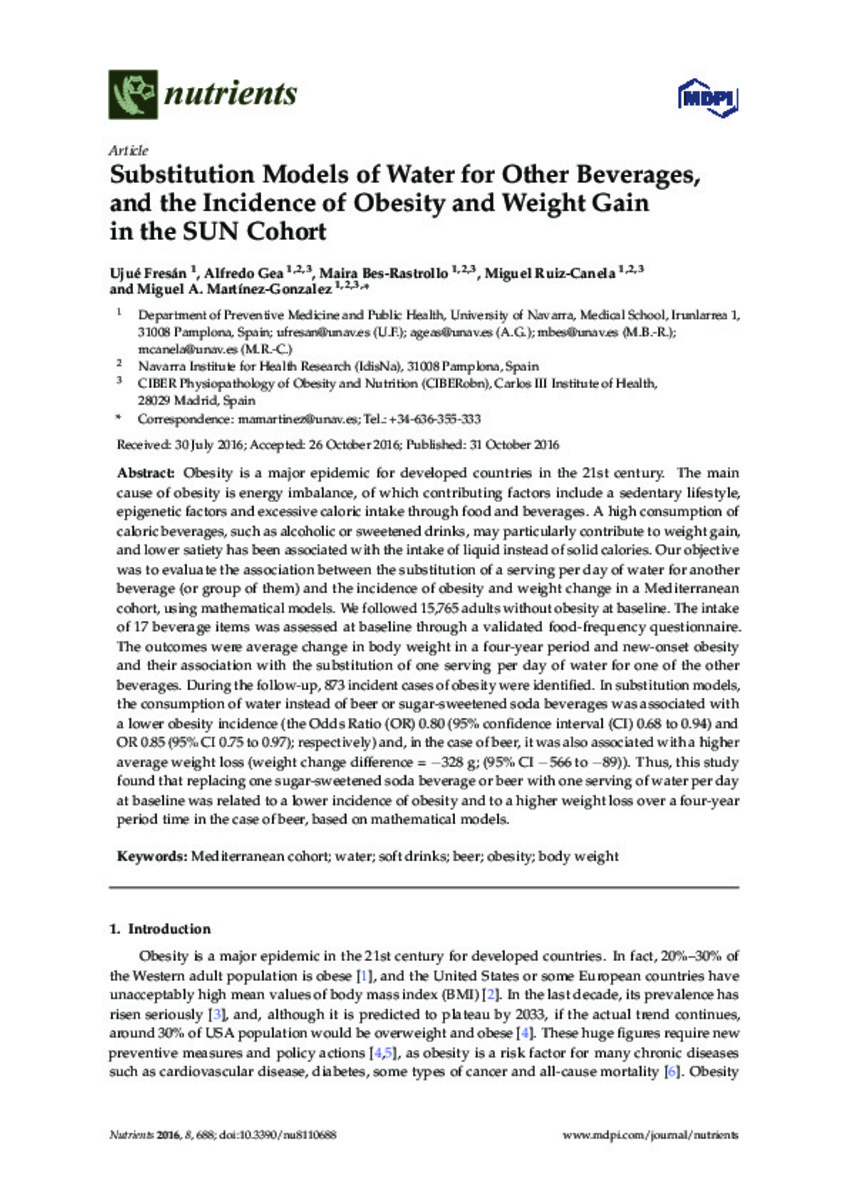Substitution Models ofWater for Other Beverages, and the Incidence of Obesity and Weight Gain in the SUN Cohort
Palabras clave :
Materias Investigacion::Ciencias de la Salud::Salud pública
Mediterranean cohort
Water
Soft drinks
Beer
Obesity
Body weight
Fecha de publicación :
2016
Editorial :
MDPI - Green Policies in RoMEO
Cita:
Fresan, U., Gea, A., Bes Rastrollo, M., Ruiz Canela, M., Martinez Gonzalez, M.A., Substitution Models ofWater for Other Beverages, and the Incidence of Obesity and Weight Gain in the SUN Cohort. Nutrients, 2016 Nov; 8(11):688
Aparece en las colecciones:
Estadísticas e impacto
0 citas en

0 citas en

Los ítems de Dadun están protegidos por copyright, con todos los derechos reservados, a menos que se indique lo contrario.








